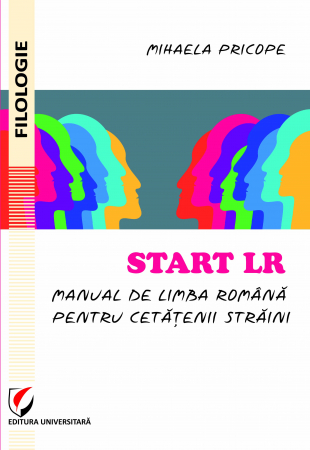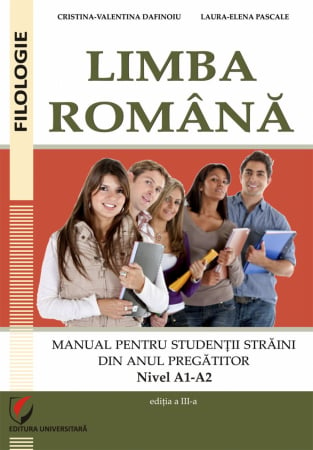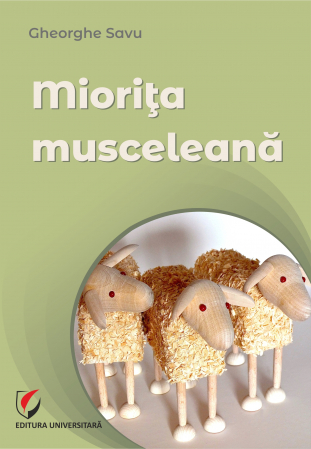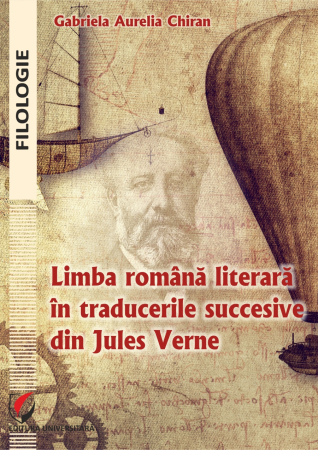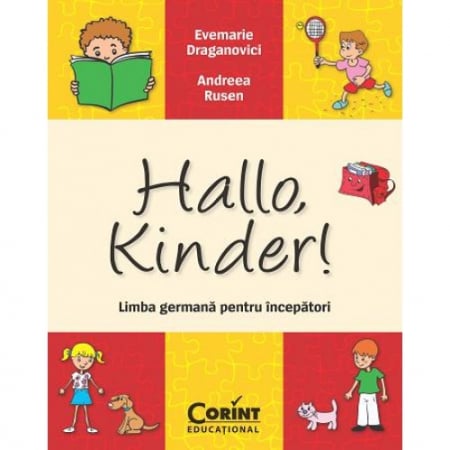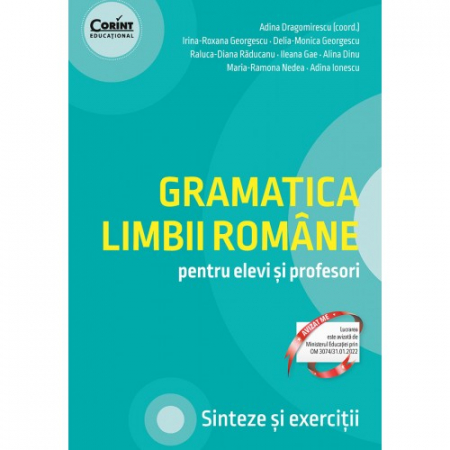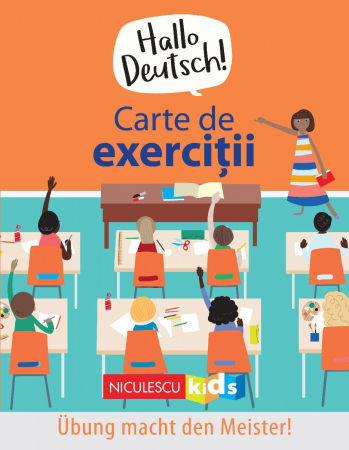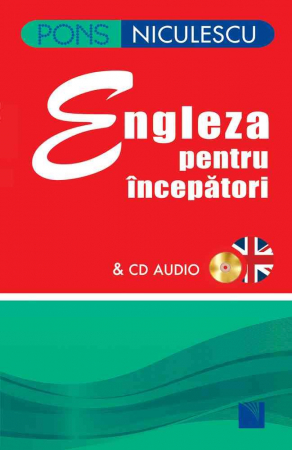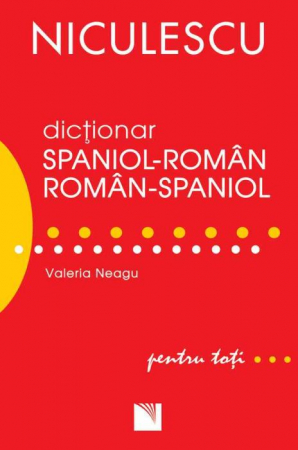ISBN: 978-606-28-0247-9
DOI: 10.5682/9786062802479
Publisher year: 2015
Edition: I
Pages: 200
Publisher: Editura Universitară
Author: Daniela Ivan
- Description
- Download (1)
- Authors
- Content
- More details
- Reviews (0)
The methodological-scientific work aims to facilitate high school students access to the Romanian prose of Mircea Eliade, which deals with two fundamental themes of literature: the adolescent at the time of making a decision decisive for his fate and erotic, analyzed by the psychology of the feminine principle Asian and male, European. Highlighting the particular features, the observations that emerge, the conclusions will have a necessary theoretical basis in such an approach, as well as a perspective of methodical investigation included in the title of the thesis - "case study".
At the didactic level, I will highlight the steps in support of continuing the process of modernizing education, as is done in the classroom activity. The presentation of some methods, procedures, didactic strategies, evaluation techniques wants to highlight not only the acquisitions made in the field of didactic theory, but also the possibility to implement them.
The chapters also offer an overview (synthesis), such as those related to the literary personality of Mircea Eliade, the reception of considered works, considerations on the Romanian interwar novel, the importance of studying Romanian literature in high school, teaching methods and procedures, theoretical opinions regarding the literary portrait as the new form (species) of literature, as well as the reading grids applied at the level of the two novels (analysis). There are proposals that can be considered as premises of this research, because they follow the place of Mircea Eliade in the context of the interwar novel, the stages of critical reception of the writer's work, identifying ways of didactic reception in textbooks, formulating precise goals in designing and achieving the process. education. Regarding the research hypothesis, we consider the fundamental themes of the two novels and the way in which we can determine students to understand not only the instructive and educational role of literature in general, of the novel in particular, but also the imposition of remarkable characters.
With reference to the general competences, I have in mind the establishment of the frame of reference for establishing and applying the methods able to stimulate the reception of the Romanian novel, the definition of the school competences in the reception of the literary text, of the literary character projected from various angles.
The conclusions, bibliography and appendices conclude the paper that aims to offer a study on adolescence, femininity, eroticism in two of the novels of Mircea Eliade, the writer who, in my opinion, must be included among the canons.
-
Active Methods in Teaching the Modern Romanian Novel. Case Study: Mircea Eliade
Download
Foreword / 7
Argument / 10
Chapter I: The importance of studying Romanian literature in high school / 12
Chapter II: Considerations on the Romanian interwar novel / 14
II.1 Opinions from the interwar period about the situation of the Romanian novel / 14
II.2 The interwar Romanian modernity or “the second canonical battle” / 26
II.3 The school fee / 28
Chapter III: The place of canonical novelists in school textbooks / 31
Chapter IV: Methods, strategies, procedures used in order to modernize the educational process and improve the school curriculum / 75
Chapter V: Mircea Eliade - novelist / 98
V.1 The personality of Mircea Eliade / 98
V.2 Mircea Eliade and the concept of authenticity / 100
V.3 „The Romanian novel of adolescence” / 116
V.4 Novels of Mircea Eliade included in the curriculum and textbooks / 117
V.4.1 Mircea Eliade, „The novel of the myopic adolescent” / 117
V.4.2 Mircea Eliade, „Maitreyi” / 130
Chapter VI: Naratology - applications / 142
Conclusions / 188
Selective bibliography / 190
Annexes / 193
The recent volume of professor Ivan Elena-Daniela, Active Methods in Teaching the Modern Romanian Novel. Case Study: Mircea Eliade, is, with the small changes imposed directly or suggested by a publishing house, the methodological-scientific work for awarding the first degree. In an effervescent climate given by many teachers aware of the need for their own efforts to continue the modernization process of education, improvement and enrichment of school curricula and textbooks, the initiative to publish the results of their research should be seen and appreciated as a welcome act. Despite some deprivations that embarrassingly affect our education and teaching, we can talk about a syntony at the level of the department in the field of specialty, which ends with necessary studies - effective tools and, at the same time, incentives in the effort of didactic, philological, scientific and so on.
Ivan Elena-Daniela is in her second editorial appearance after The Student Portfolio. The Epic Genre.
This paper is structurally characterized by a close relationship of methodological-theoretical and applied considerations - with the aim of an intense and active participation of students in classes (didactic dynamics), with assessments of literary works under investigation (scientific dynamics). At the base of the two "segments" is a thorough theoretical training of methodological, literary and cultural.
A brief but introductory "Argument" announces the purpose of this approach from a methodical and critical perspective, with an expected corollary: the inclusion of Mircea Eliade among the canonical writers. It opens the perspective of a homogenized work through the approached and thematic method subjected to “revealing” analyzes, as in the chapter “Naratology - applications”, which concludes the thesis so usefully. The particularly rich information in the field offers the chance of some uncritical comments regarding certain periods under the pressure of some concepts, such as the literary canon, of some opinions, of some abandonments and returns under another denomination. There are appreciations that increase the interest of reading, the mutations supporting the dynamic character of the discipline. Contextualizing the literary work of Mircea Eliade, the chapter on the Romanian interwar novel addresses some of the critical opinions regarding the situation of our novel in this period, about Romanian modernity or, in Manolesian formulation, "the second canonical battle", completed by the subchapter "Canon school ”, followed, naturally and convincingly, by the third chapter entitled“ The place of canonical novelists in school textbooks ”, where the interventions, suggestions, proposed solutions prove to be beneficial.
The author thoroughly assimilated her rich, selective readings, however, some being true landmarks. This allows him to appeal to critical "voices" of recognized prestige, such as Eugen Lovinescu, G. Calinescu, Garabet Ibraileanu and others, as well as the opinions of some novelists, among them Liviu Rebreanu, HP-Bengescu, Camil Petrescu, Mihail Sebastian, Mircea Eliade, of course, etc., with a conclusion, let's call it his own, to remember: "Discussions and disputes regarding the novel in general", ”...), like those about the Romanian novel continues today, especially through the positions of critics. Regardless of the theme, the character, the "stylistic axis", the novel remains the species in prose with a great grip on the contemporary reader. To these observations, correct, are added others about the canon, about the importance of the Case Study, as an active method with a formative role, applicable in several fields, including the limits imposed by the necessary training time, etc.
With reference to the Romanian canon, the content clearly shows the interest given to this concept, the fact that teacher Ivan Elena-Daniela pleads for the inclusion of Mircea Eliade among the Romanian canonical writers, a situation due to the reservations of the last two literary canon creators. I am referring to G. Calinescu (in History ... to declare: "What Mircea Eliade lacks is literary talent, dreamlike credibility, linguistic ineffability") and Nicolae Manolescu (in Critical History of Romanian Literature. 5 centuries of literature does not pass him among the great interwar writers, with a restrictive conclusion: "The novelist will succeed in a few short stories and two novels in which he is more of a storyteller, in the first person (but not necessarily) than a builder of objective human universes" Note that the shortcomings detected by the two great critics are not necessarily found in the vision of Harold Bloom, who points out: "A strong literary originality and the ability to subsume tradition are the characteristics of canonical texts."
The "literary canon" is a concept with its own life - that is, as Hegel said of concepts, "they are born, evolve, multiply, and sometimes disappear." It is natural the attention paid, after the critical, theoretical, editorial inflation about postmodernism. Perfectly framed, as I said, Hegelian. Modifications, therefore revisions, are necessary if the specific conditions of certain periods are taken into account, especially due to certain ideological pressures. Eliminations and new proposals for "canonization" will certainly be accepted. Disputes, even at the level of those who directly serve education, seem to me necessary and useful.
At a good theoretical and applied standard is the dense subchapter "Mircea Eliade and the concept of authenticity". References to representative authors in the field, including the opinions of Eliade and other "authentic" novelists, observations regarding the searches and temptations of a new modern Romanian typology, comments from these perspectives to the two novels have the quality of not being compelling. On the contrary, I would say, it invites us to new positions. As in the large didactic segment, where the case study seen as a method, well structured and conditioned by the selected literary text, is applied, in relation to other procedures and with discernment, in the analysis of numerous fragments proposed by the authors of alternative textbooks. The method (or process, I would say) revives, in a complex vision, the older literary processes (not absent, however, not even now), a few decades ago which were abandoned fairly quickly for a long time. They were probably exhausting for the students' creative ability, oriented towards other occupations and horizons. However, I had noticed that the aesthetic argument was not very appealing. A vacuum has been created, supplemented more successfully by the proposal launched by Harvard University with a well-defined purpose, namely to involve those who actively apply it in issues related to society and existence. The results of the application of the case study are convincing and the author proposes some analyzed works thus signed by H. P-Bengescu, G. Calinescu or a synthesis subject such as "The success of the novel in the interwar period".
The conclusions that confirm the materialization of the objectives proposed in "Argument", the selective bibliography, correctly structured, updated and respecting the philological rigors, the 7 annexes of some utility conclude this well-articulated methodical and critical discourse that reconstitutes the whole. Keeping a decent balance between the aspects imposed by the theoretical apparatus, the finalities considered and one's own opinions, the volume Active Methods in Teaching the Modern Romanian Novel. Case Study: Mircea Eliade, by Elena-Daniela Ivan, will enjoy, I am convinced, a good reception by those directly interested. And not only that..
prof. univ. Dr. Nicolae Rotund

6359.png)
![Active Methods in Teaching the Modern Romanian Novel. Case Study: Mircea Eliade [1] Active Methods in Teaching the Modern Romanian Novel. Case Study: Mircea Eliade [1]](https://gomagcdn.ro/domains/editurauniversitara.ro/files/product/large/metode-active-in-predarea-romanului-romanesc-modern-studiu-de-caz-mircea-eliade-755-604825.jpg)
